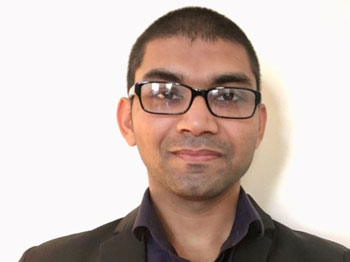Source – https://www.selectscience.net/
Expert at the Yale Center for Genome Analysis reveal the tools they use to study inherited conditions and their potential treatments
Mendelian disorders – such as cystic fibrosis and sickle cell anemia – are genetic disorders that primarily result from a mutation at a single genetic locus. This type of single-gene disorder is rare, but often causes a significant burden on patient health and quality of life.
Dr. Shrikant Pawar, an associate research scientist at the Yale Center for Genome Analysis (YCGA), is a computational biologist whose experience with big data and machine learning analysis makes him distinctly qualified to analyze the large volume of sequencing data required for the study of genetic disorders.
In this exclusive interview, Pawar shares how the Yale Center for Mendelian Genomics (CMG) applies next-generation sequencing (NGS) and computational approaches to discover the genetic basis of Mendelian conditions in order to facilitate diagnosis and indicate potential new treatments. Pawar also highlights the importance of reliable equipment, from sequencers and big data analytics software to pipettes and pipette tips.
What are the goals and intended impacts of your work at the YCGA?
SP: At the CMG, we use a range of sequencing techniques to understand the genetic basis and causation of Mendelian disorders. We also use this data to explore potential treatment strategies for such disorders.
In general, genetic disorders are quite rare and affect one person in every thousand or million people. Inheritable genetic disorders usually occur in the germline cells, whereas non-inheritable genetic disorders are generally caused by new mutations or changes in the DNA from environmental causes.
As an example, cancer may either be caused by an inherited genetic condition, or by a novel mutation. I am most excited about our optimistic future in the treatment of diseases such as cancer — thanks to recent successes with CRISPR and the use of artificial intelligence (AI) in basic science, we are not far from abating human suffering caused by these dreadful diseases.
How do you use NGS and data science for cancer research?
SP: We perform whole and exome NGS to understand novel structural variants (SVs) in the genomes of cancer patients. SVs are any deletions, insertions, duplications, copy number variants, inversions, or translocations of DNA within an expected sequence.
Understanding these SVs is extremely important for uncovering the mechanisms of cancer formation and progression, and for informing the development of novel cancer treatments. We also apply machine learning techniques to the sequencing data we obtain, to understand novel prognostic and diagnostic biomarker genes and proteins.
Being able to generate and analyze big data was a crucial step in data science. Although we are generating a lot of data via NGS, having access to robust machine learning techniques is an important consideration for interpretation and assigning importance to our findings.
How do you use Biotix aTip Pipette Tips in your work?
SP: Our NGS workflow is validated using techniques including RT-PCR. The Biotix aTip Pipette Tips work well right from NGS and microarray setups through to the subsequent validation analysis. The pipettes are well calibrated and accurate, making them less hassle to use when compared to other well-known brands.
When choosing pipettes and tips, I would advise people to make the decision based on personal usage experiences and not brand value or cost – that’s why we chose Biotix.
Why do you think communication between research and industry is important?
SP: Industry plays an important role in providing services and instrumentation at a fast pace and is exclusively dependent on research to do so. Research and industry are like a married couple — without communication, this relationship would not survive.
